Ebuta Goat Dairy Townsville has recalled Ebuta Dairy Goats Milk Unpasteurised from greengrocers in Townsville, Queensland, due to E. coli contamination.
As usual for Australian regulators, no info on how this was detected or if anyone is sick.

Ebuta Goat Dairy Townsville has recalled Ebuta Dairy Goats Milk Unpasteurised from greengrocers in Townsville, Queensland, due to E. coli contamination.
As usual for Australian regulators, no info on how this was detected or if anyone is sick.
Food packaging would be stamped with pie or triangle graphs illustrating how much of the product is locally grown under a proposed overhaul of labelling laws.
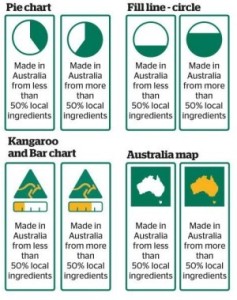 A two-month consultation study into food labelling regulations has found food can be ‘Made in Australia’ without any Australian ingredients. It also concluded consumers find current laws “confusing and irrelevant” and business considered the existing requirements “burdensome”.
A two-month consultation study into food labelling regulations has found food can be ‘Made in Australia’ without any Australian ingredients. It also concluded consumers find current laws “confusing and irrelevant” and business considered the existing requirements “burdensome”.
The government initiated the overhaul of food labelling laws in the wake of the contaminated frozen berries scandal in February.
The Department of Industry and Science says the common ‘Made in Australia from local and imported ingredients’ label is meaningless. It wants to scrap a current accounting production test known as the Safe Harbour Defence, which allows a manufacturer to label their food as Australian made if half the “transformation” or processing has taken place in Australia.
Given the production test includes labour and transport it is often difficult to process a food in Australia made from imported ingredients below the 50 per cent “transformation” threshold, meaning the so-called protection is redundant.
“It appears burdensome for business, yet of little relevance for consumers,” the department’s paper says.
Under new labels being considered, a graphic would included for food partially made in Australia as well as text which would clearly explain what is done in Australia and the proportion of Australian ingredients.
There would be no graphic for imported foods but text would be required to state where the food was manufactured and the origin of ingredients.
Amy went out for dinner last night with some uni colleagues.
 She checked out the menu beforehand – as you do when living with a food safety type for 10 years – and I was encouraged by the 50C salmon and 65C eggs.
She checked out the menu beforehand – as you do when living with a food safety type for 10 years – and I was encouraged by the 50C salmon and 65C eggs.
Unfortunately, this was the summer menu and it’s winter here.
And I noticed the aioli on the menu, and asked Amy, ask the server if it’s made with raw eggs.
Of course it was.
When those questions are asked in a restaurant, servers think you want to hear whatever is fashionable.
Ten years ago I was sitting in a B.C. restaurant with Chapman and a provincial health inspector, and ordered fish, and asked, is it farmed or wild?
He assured me it was wild.
I said I wanted farmed because that left a smaller ecological footprint.
He said, no one had ever asked for farmed, and eventually admitted that yeah, some of it was farmed.
So how are consumers supposed to know?
They don’t. It’s all faith-based.
I made dinner for Amy before she went out.
She didn’t eat the aioli.
While it’s nice that Dr Paul Armstrong, chairman of the Communicable Diseases Network Australia, acknowledged the other day that, “We have an ongoing problem with salmonella infections linked with chickens, particularly eggs,” it doesn’t help diners who are served raw-egg aioli.
A shot rang out.
It was about 7:30 p.m. last night. I said to Amy that sounded like a gunshot, she said, nah, I grew up in Montana around guns, that wasn’t a gunshot.
Ten minutes later we got an e-mail from the townhouse next door, saying a bullet had ripped through their walls.
We’ve lived beside these bogans for three years, but they’re getting worse.
The street was in lockdown, cops were negotiating with people inside the house, I was told to stay with Sorenne.
Talking to the two police officers this morning following up on the shooting – and this isn’t the U.S., they take such things seriously here – I said isn’t that house a drain on your resources. Don’t you have better things to do?
Yup.
It’s the same with raw milk, anti-vaxxers and whatever else is out there: It’s a huge drain on public resources that could be better spent elsewhere.
Australia can be a weird place.
 A collection of cattle gallstones, which are used in Chinese herbal medicine at $20,000 per kilogram, began disappearing over the last six months from a slaughterhouse at Oakey, west of Toowoomba.
A collection of cattle gallstones, which are used in Chinese herbal medicine at $20,000 per kilogram, began disappearing over the last six months from a slaughterhouse at Oakey, west of Toowoomba.
The Toowoomba Stock and Rural Crime Investigation Squad this week raided a property at Cranley and a 38-year-old man was charged.
He will appear in the Toowoomba Magistrates Court on June 23.
Acting detective senior sergeant Brendan Murphy said police had to act fast because the small gallstones are easy to dispose of.
South of Queensland in the state of New South Wales, animal activists reported shearers at a NSW property for abuse because they were upsetting the herd with abusive language.
While the case has been dropped, the issue came up at a Senate estimates hearing on Tuesday with Nationals senator John Williams demanding to know if department officials had received any formal complaints – from the sheep themselves.
“Not yet senator,” policy official Fran Freeman said.
Australian bureaucrats apparently don’t know hepatitis A is only transmitted amongst humans – it does not go through animals.
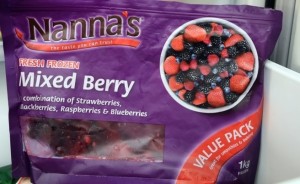 But to have the appearance of doing something, importers of frozen berries will have to prove their fruit comes from farms and factories with strict sanitation standards after 34 people were sickened with hep A in Australia this year.
But to have the appearance of doing something, importers of frozen berries will have to prove their fruit comes from farms and factories with strict sanitation standards after 34 people were sickened with hep A in Australia this year.
The Federal Agriculture Department enacted new health regulations, with the threat of up to 10 years jail if importers do not comply.
The department will also begin testing berries for E. coli after the rash of food poisoning cases highlighted inadequate screening and lax product labelling rules.
Victoria’s Patties Foods recalled Nanna’s 1kg frozen mixed berries after people were diagnosed with hepatitis A after eating this brand, which was packed in China.
The source of the infection remains unknown but the only common element was all patients ate the same brand of berries. Tests on an unopened pack found traces of the virus.
Thirty companies import frozen berries from China.
The food safety watchdog says correctly handled berries do not pose a medium or high threat to health but the new rules require importers to follow good agricultural and hygienic practices throughout the supply chain.
These include no contact with fecal matter or animals, clean and sanitised equipment, the product stays frozen and clean water is used for growing and washing berries.
Before they can ship berries into Australia, importers will have to review suppliers and keep records of these assessments.
Five per cent of berry consignments will be tested for E.coli, which can be a sign of poor hygiene. Testing for hepatitis A can be difficult because levels of the virus in food may be too low to be detected.
The Australian live animal export market makes a lot of money, but cannot be condoned, since refrigeration has existed since the late 1800s.
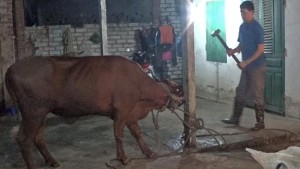 According to Australian media, shocking footage has emerged of live export Australian cattle being bludgeoned to death with sledgehammers in Vietnam.
According to Australian media, shocking footage has emerged of live export Australian cattle being bludgeoned to death with sledgehammers in Vietnam.
Government authorities have been investigating reports of the sickening slaughter method since March, but Animals Australia said yesterday it was the first time photographic evidence had been made public.
Video obtained by the animal welfare group shows handlers in a Vietnamese abattoir repeatedly striking beef cattle over the head with a sledgehammer to subdue and kill them.
The hidden camera vision was captured late last month in a facility in northern Vietnam.
Animals Australia spokeswoman Lisa Chalk said Vietnam was currently the second-largest export market for Australian cattle, with 178,000 animals exported there in 2014.
“The industry has called what is happening in Vietnam ‘growing pains’,” Ms Chalk said.
“Most people would disagree. It’s horrific and preventable suffering.”
Animals Australia, the organisation which earlier this year helped expose the cruel practice of live-baiting within the greyhound industry, said video showing the sledgehammer slaughters was “so shocking and distressing that a decision has been taken to not publicly release it at this time.”
Mark Tyler of South Australia says the raw milk distributed from his 50 or so cows at his Willunga Hill property to shareholders who paid $30 plus a fortnightly boarding fee, then picked up their milk regularly from the farm, is safe.
The Tylers could face a fine of up to $50,000 for breaching food regulations.
Raw milk sales are illegal and the South Australian Government argued the couple’s “cow share” arrangement constituted a sale under the Food Act.
“We’ve got over 2,000 people drinking it every day, really no one’s having an issue,” said Tyler.
“There’s virtually no proven cases of raw milk causing illness in people.”
Nosestretcher.
There has been a push by legislators to crack down on raw milk sales across Australia since a three-year-old Victorian boy died last year.
(I and others applied for this, but knew it was an inside job. Here is the take from Australian Food News)
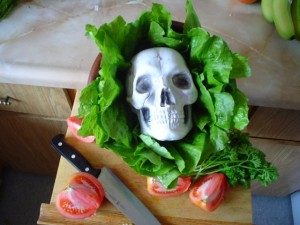 The Fresh Produce Safety Centre (FPSC), which is an organisation established with government and industry support in 2013, has announced the winning tender bid for the conduct of a literature review of fresh produce safety research.
The Fresh Produce Safety Centre (FPSC), which is an organisation established with government and industry support in 2013, has announced the winning tender bid for the conduct of a literature review of fresh produce safety research.
The announcement has produced some skepticism from commentators about the whole bureaucratic process involving the Fresh Produce Safety Centre’s role in improving the current Australian food safety regime for fresh produce.
The principal industry sector group supporting the establishment of the Fresh Produce Safety Centre has been the Produce Marketers Association Australia New Zealand (PMA A-NZ), which is the representative body of importers and international traders of fruit and vegetables.
The major supermarkets and food safety audit organisations already follow and monitor their own very strict food safety protocols at all points in the supply chain. Commentators are therefore asking why it ought be necessary for the FPSC to be ‘reinventing the wheel’.
Incidentally, the winning tender bid is a team consisting of TQA Australia Inc, RMCG, and the Institute of Environmental Science and Research in New Zealand, in concert with the Food Safety Centre at the University of Tasmania. The project has the support of the NSW Food Authority, Pip Fruit New Zealand, Golden State Foods and Snap Fresh Foods, and Fresh Select.
In 2009-2010, a process had been initiated by Food Standards Australia New Zealand (FSANZ) to incorporate food safety primary production and processing standards for horticultural produce into the Australia New Zealand Food Standards Code (Food Standards Code). However, the PMA and some of the major produce importers opposed the inclusion in the Food Standards Code of a set of food safety standards for their industry sector. Ultimately, the Federal Government relented and the FSANZ process for developing a new mandatory food safety standard was aborted.
The reasons given at the time for the abandonment of the proposals included: the fact that the majority of horticulture product grown in Australia is already grown under a food safety scheme, and that a better understanding of those products that were not grown under a food safety scheme was required before further regulation should be considered.
FSANZ proposed a collaboration between the horticulture industry and government – with suggested measures such as “targeted guidance, codes of practice, education materials and training” and better through-chain traceability measures.
The PMA took the initiative to establish the concept of a ‘fresh produce safety centre’ with government and industry backing.
Some commentators are now consider the whole process a ‘waste of time and industry resources, and taxpayer funds’, especially for growers, supermarkets and other operators in the horticultural supply chain within Australia.
It’s not a new superbug, it’s an outbreak of super stupidity.
A Brisbane TV station finally woke up to Australia’s egg problem, and titled their investigation (bottom), Scientists fear super strain of bacteria behind food poisoning outbreak.
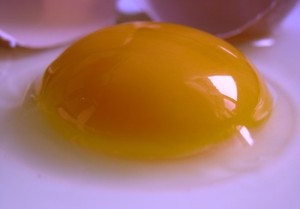 This refers to the numerous egg-related outbreaks in Queensland and throughout Australia, largely related to a chef snobbery that they have to make their own aioli or mayo using raw eggs.
This refers to the numerous egg-related outbreaks in Queensland and throughout Australia, largely related to a chef snobbery that they have to make their own aioli or mayo using raw eggs.
A table of raw egg related outbreaks in Australia is available at https://barfblog.com/wp-content/uploads/2015/03/raw-egg-related-outbreaks-australia-3-12-15-2.pdf or https://barfblog.com/wp-content/uploads/2015/03/raw-egg-related-outbreaks-australia-3-12-15.xlsx
And in response to the 32 Australians that have been stricken with Hepatitis A from imported frozen fruit, a new initiative is targeting Brisbane shoppers to support local farmers by buying local produce.
Every time some in Brisbane gets religion about buying local, I point out that’s much easier in a sub-tropical climate than, say, Canada.
The scheme involves 100 independent grocers and is backed by Brisbane’s Produce Markets.
Greengrocer Joseph Guardala said the “hand picked” message was aimed at family shoppers.
He claims greengrocers have better fruit and vegetables than major supermarkets, because they specialize in it.
“They don’t want imported stuff, they want their local fruit to and veg to be locally grown here,” he said
He visits the Brisbane Markets every morning to source the produce for his store, Indooroopilly Fruit.
“I’m hand picking everything, I’m tasting everything, I open boxes, I even pick through pallets every day, just to get my 24 grapes that I exactly want,” he said.
Here’s hoping you washed your hands properly before spreading Norovirus on all that fresh fruit and veg you touch.